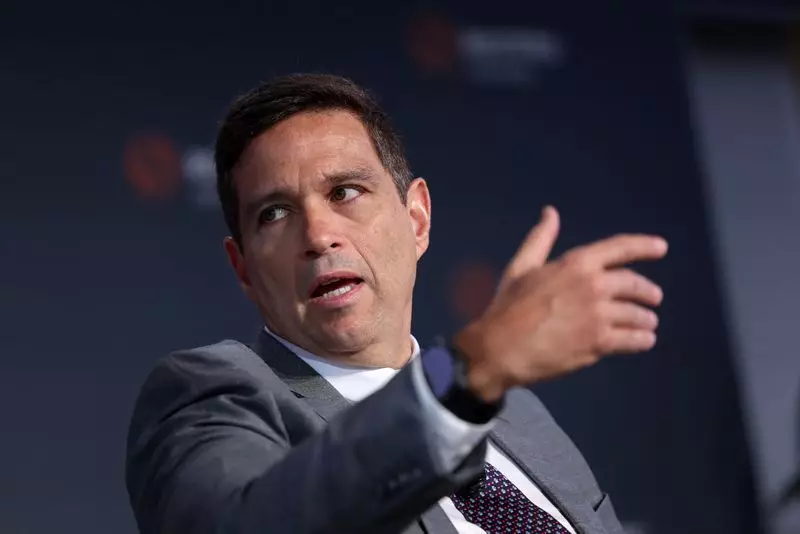In a insightful interaction, Roberto Campos Neto, the chief of Brazil’s central bank, highlighted a critical intersection between U.S. politics and global inflationary trends. He revealed that markets are adjusting their forecasts in light of the “highly” inflationary repercussions anticipated from the looming U.S. election. This electoral dynamic, particularly around Donald Trump and Kamala Harris, has raised concerns about future inflation. As both campaigns propose elements of fiscal expansion, the implications for inflationary pressures could be significant and far-reaching.
The political situation in the U.S. serves as a potential bellwether for global economies. Increased speculation surrounding Trump’s candidacy lends weight to concerns about heightened fiscal spending, which traditionally stirs inflation. Coupled with protectionist policies and shifts in immigration regulations proposed by both candidates, these factors could create a volatile environment not just for the U.S. economy, but also for countries like Brazil that closely monitor such developments.
Turning the gaze inward, Campos Neto also addressed Brazil’s own inflation concerns. The latest figures show an inflation rate of 4.47% over the twelve months leading to mid-October, notably above the official target of 3%, with a permissible deviation of 1.5 percentage points. This marginally worse outcome underscores the persistent inflationary pressures in Brazil’s economy. However, the announcement of reduced energy tariffs in November emerged as a silver lining, prompting a wave of optimism among economists who have subsequently revised their forecasts.
Such structural factors play a pivotal role in shaping inflation in Brazil. The central bank’s vigilant stance on these developments is crucial as it aims to stabilize the economy while navigating through external pressures. Campos Neto’s assertion that Brazil’s fiscal circumstances are not substantially worse than those encountered in other nations reflects a nuanced understanding of global economic standings.
Despite the international apprehensions regarding fiscal sustainability, Campos Neto emphasized that the current risk premium embedded in the yield curve is alarming, yet necessary caution is prudent. The Brazilian government’s public finance situation reveals complexities that merit attention but aren’t uniquely detrimental compared to global counterparts. Therefore, it is essential for Brazil to undertake significant structural reforms to restore investor confidence and stabilize its economic environment.
The approach to adjusting interest rates is another focal point. With an upcoming policy meeting on November 5-6, many economists are predicting a rate hike due to the necessity of curtailing inflation. Following a modest increase of 25 basis points previously, further tightening of monetary policy becomes imperative if Brazil is to align its economic indicators with the broader objective of achieving a stable inflation rate.
The intertwined fates of U.S. electoral outcomes and Brazilian economic health spotlight the intricacies of our globalized economy. Campos Neto’s insights compel markets and policymakers alike to remain vigilant in the face of shifting political landscapes and the intricate complexities of fiscal narratives, both local and global. The journey towards fiscal stability in Brazil continues to require robust and proactive measures, ensuring that inflation does not derail economic recovery and growth in a challenging global context.


Leave a Reply